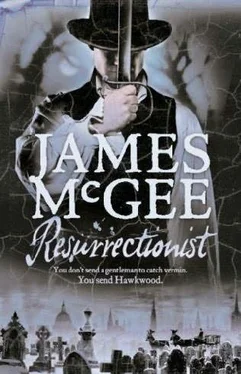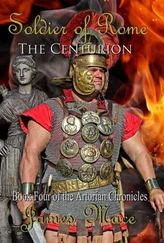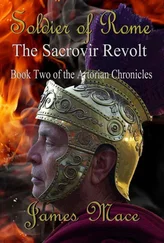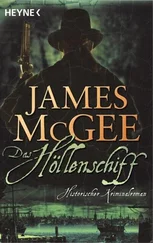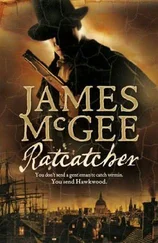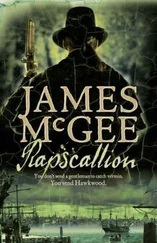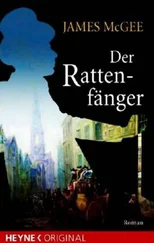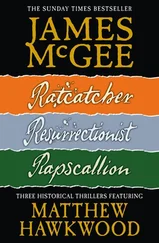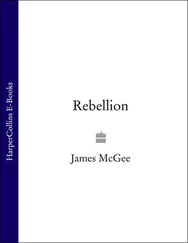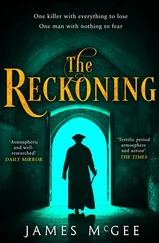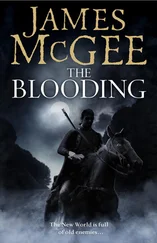James McGee - Resurrectionist
Здесь есть возможность читать онлайн «James McGee - Resurrectionist» — ознакомительный отрывок электронной книги совершенно бесплатно, а после прочтения отрывка купить полную версию. В некоторых случаях можно слушать аудио, скачать через торрент в формате fb2 и присутствует краткое содержание. Жанр: Исторический детектив, на английском языке. Описание произведения, (предисловие) а так же отзывы посетителей доступны на портале библиотеки ЛибКат.
- Название:Resurrectionist
- Автор:
- Жанр:
- Год:неизвестен
- ISBN:нет данных
- Рейтинг книги:4 / 5. Голосов: 1
-
Избранное:Добавить в избранное
- Отзывы:
-
Ваша оценка:
- 80
- 1
- 2
- 3
- 4
- 5
Resurrectionist: краткое содержание, описание и аннотация
Предлагаем к чтению аннотацию, описание, краткое содержание или предисловие (зависит от того, что написал сам автор книги «Resurrectionist»). Если вы не нашли необходимую информацию о книге — напишите в комментариях, мы постараемся отыскать её.
Resurrectionist — читать онлайн ознакомительный отрывок
Ниже представлен текст книги, разбитый по страницам. Система сохранения места последней прочитанной страницы, позволяет с удобством читать онлайн бесплатно книгу «Resurrectionist», без необходимости каждый раз заново искать на чём Вы остановились. Поставьте закладку, и сможете в любой момент перейти на страницу, на которой закончили чтение.
Интервал:
Закладка:
“You examined his brain?”
The apothecary blanched and said hurriedly, “Not I, Crowther. At least we can be thankful that the man was sober on that occasion. He — ”
“I don’t care who wielded the damned knife, Doctor. You’re telling me the hospital cuts open its dead patients?”
“Not all of them.”
Not all of them. Good Christ, Hawkwood thought. What sort of place is this?
“You look shocked, Officer Hawkwood,” Locke said, his composure restored. “Dissections are a necessary procedure if we are to advance our knowledge. As I’ve told you, I believe there’s a direct correlation between diseases of the brain and madness. My own research has convinced me, for example, that the lateral ventricles in the brain are greater in maniacs than those who are sane. I — ”
“I’m sure that comes as a comfort to the grieving widows,” Hawkwood growled, not having the slightest clue what the apothecary was talking about and unable to keep the bite from his voice. “You were telling me about the Reverend Tombs.”
For a moment it appeared the apothecary was about to attempt further justification for his argument, but Hawkwood’s demeanour obviously made him reconsider. Clearly the Runner was in no mood to engage in a bracing discussion about ethics.
“Indeed,” said Locke. “I understand the colonel heard of the Reverend Tombs’s visits from one of the keepers, a passing reference perhaps and mention made that the patient had been a military man like himself. Whatever the circumstances, I do recall that after some consideration I decided there’d be little harm if the Reverend Tombs were to accept Colonel Hyde’s request to call upon him. That would have been about six months ago. Since then the reverend has been a regular visitor to his room, usually once a week.”
“So the priest was here to hear the colonel’s confession?”
The apothecary shook his head. “You misinterpret the situation. Besides, Reverend Tombs was an Anglican. No, although on this latter occasion he was here to play chess, I’m sure their conversations touched upon a variety of topics: medicine, philosophy, history, the war…” The apothecary frowned and added pointedly, “I did not place my ear against the door.”
“Did they ever tell you what they talked about?”
The apothecary shrugged. “Only in the most general terms.”
“So you weren’t aware of any recent disagreement the two of them might have had?”
Locke pursed his lips. “No, not at all. As far as I was aware they always parted on the best of terms.”
There were plenty of men who’d come to blows over a game of hazard, Hawkwood mused. Why not chess? But even as the notion entered his mind, he dismissed it as so unlikely, it bordered on the ridiculous.
“What about the colonel’s mood? Did you notice any changes recently?” Even as he posed the question, he was reminded that the colonel had been diagnosed as incurably mad. The man had probably suffered more mood changes than there were fleas on a dog. How could anyone, even a mad-doctor, differentiate one from the other?
But Locke shook his head. “None. There was nothing in his manner to suggest his state of mind had been… transformed in any way. In any case, the colonel was never one to display emotion. Indeed, that was one of his characteristics. In many respects it made him an ideal patient. His demeanour was always calm, one might even say tranquil, accepting of his lot, if you will. You’ve seen his room. It was a place of order, of study and contemplation.”
Hawkwood considered the implications. If there had been no obvious disagreement or falling out between the two of them and the colonel had displayed no startling changes of personality, that left… what? He needed more information; a lot more.
“I want to see your admission documents on Colonel Hyde,” Hawkwood said. “And I need a description. We know what he was wearing when he left, but we need to know the rest — his height, hair colour and so forth — if we’re to hunt him down.”
“Very well.” The apothecary paused before continuing. “I can tell you that Colonel Hyde is forty-nine years of age. His hair is still dark, though it is receding and he has some grey around the temples. He is of slender but not slight build and he has a military bearing which can make him look taller. If truth were told, his physique is not dissimilar to that of the unfortunate Reverend Tombs.”
How convenient, Hawkwood thought. “Other than his madness, is he well… physically?”
Locke blinked, as if the question had been unexpected. “Indeed he is. The colonel enjoys excellent health. In fact, he made a point of maintaining his physical condition through a routine of daily exercises. I recall it was the cause of some amusement among the staff.”
Hawkwood frowned. “What sort of exercises?”
“He told me once that he learned them from his regimental fencing master. I believe that, during his military service, the colonel was considered an excellent swordsman.”
“Scalpels and sabres,” Hawkwood said. “My, my.”
Locke coloured.
“Anything else we should know?”
Before the apothecary could reply there was a sharp rap on the door. Locke started in his seat. He turned, a look of mild annoyance on his face. “Come!”
The door opened. Mordecai Leech stood on the threshold.
The apothecary’s eyebrows rose. “Mr Leech?”
“Beggin’ your pardon, Doctor, there’s a Constable Hopkins from the Foot Patrol down below. Wants to see Officer Hawkwood. Says it’s urgent.”
But the constable wasn’t down below. He was behind Leech’s shoulder, presumably having shadowed the lumbering attendant up the stairs without the latter’s knowledge. Young, and dressed in an ill-fitting blue jacket and scarlet waistcoat, he looked dishevelled and was breathing hard, as if he’d been running. He elbowed the startled Leech aside and thrust his way into the room. His gaze settled on Hawkwood and his eyes widened in recognition. “We have him, Captain! We have the parson!”
It was on the tip of Hawkwood’s tongue to ask what bloody parson, when it struck him that Hopkins had been one of the constables dispatched to St Mary’s earlier that morning by James Read and that, as far as they and the Chief Magistrate were concerned, Reverend Tombs was still the man they were looking for.
As though suddenly mindful of his surroundings, the constable removed his black felt hat and held it behind his back. The removal of the headgear revealed a mop of unruly red hair and prominent ears that would have made a fine pair of jug handles.
“Where?” Hawkwood was already heading towards the door, aware that both Locke and Leech were staring at the constable as though the latter had sprouted a second head.
“The church. We tried the vicarage first. Knocked on the door.” The words came out in a rush. “But there weren’t no answer. Then we heard someone movin’ around inside, so we called out that we were from Bow Street, under orders from the Chief Magistrate, and that he was to let us in on account of questions we wanted to ask him about a murder.” The constable fought for breath. “We couldn’t see anything, so Conductor Rafferty left Constable Dawes and me at the front and went round the back to see if he could look through the window and find out what was going on. That was wh-” The constable paused, transfixed by the look on Hawkwood’s face.
“Rafferty?” A nerve flickered along Hawkwood’s cheek. “Edmund Rafferty?”
The constable blinked at the growl in Hawkwood’s voice and nodded again, nervously this time.
“God’s teeth!” Hawkwood rasped. He swung back to Locke. “Don’t stray too far, Doctor. It’s likely I’ll need to talk with you again. You, too, Mr Leech.”
Читать дальшеИнтервал:
Закладка:
Похожие книги на «Resurrectionist»
Представляем Вашему вниманию похожие книги на «Resurrectionist» списком для выбора. Мы отобрали схожую по названию и смыслу литературу в надежде предоставить читателям больше вариантов отыскать новые, интересные, ещё непрочитанные произведения.
Обсуждение, отзывы о книге «Resurrectionist» и просто собственные мнения читателей. Оставьте ваши комментарии, напишите, что Вы думаете о произведении, его смысле или главных героях. Укажите что конкретно понравилось, а что нет, и почему Вы так считаете.
